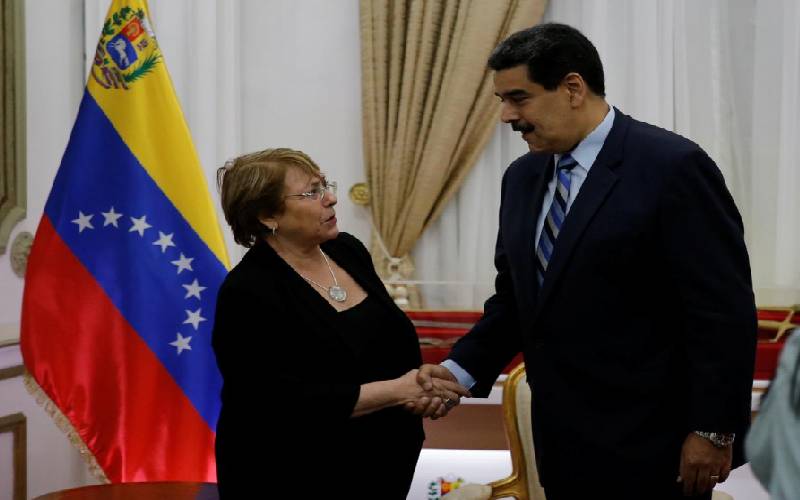×
The Standard e-Paper
Stay Informed, Even Offline

UN human rights chief Michelle Bachelet on Friday urged Venezuela’s government to release prisoners who were arrested for peacefully protesting, and confirmed that a delegation would remain in the country to monitor the human rights situation.
Bachelet, a former Chilean president who arrived in Caracas on Wednesday for a three-day visit, met with President Nicolas Maduro and opposition leader Juan Guaido, as well as activists and victims of human rights violations.